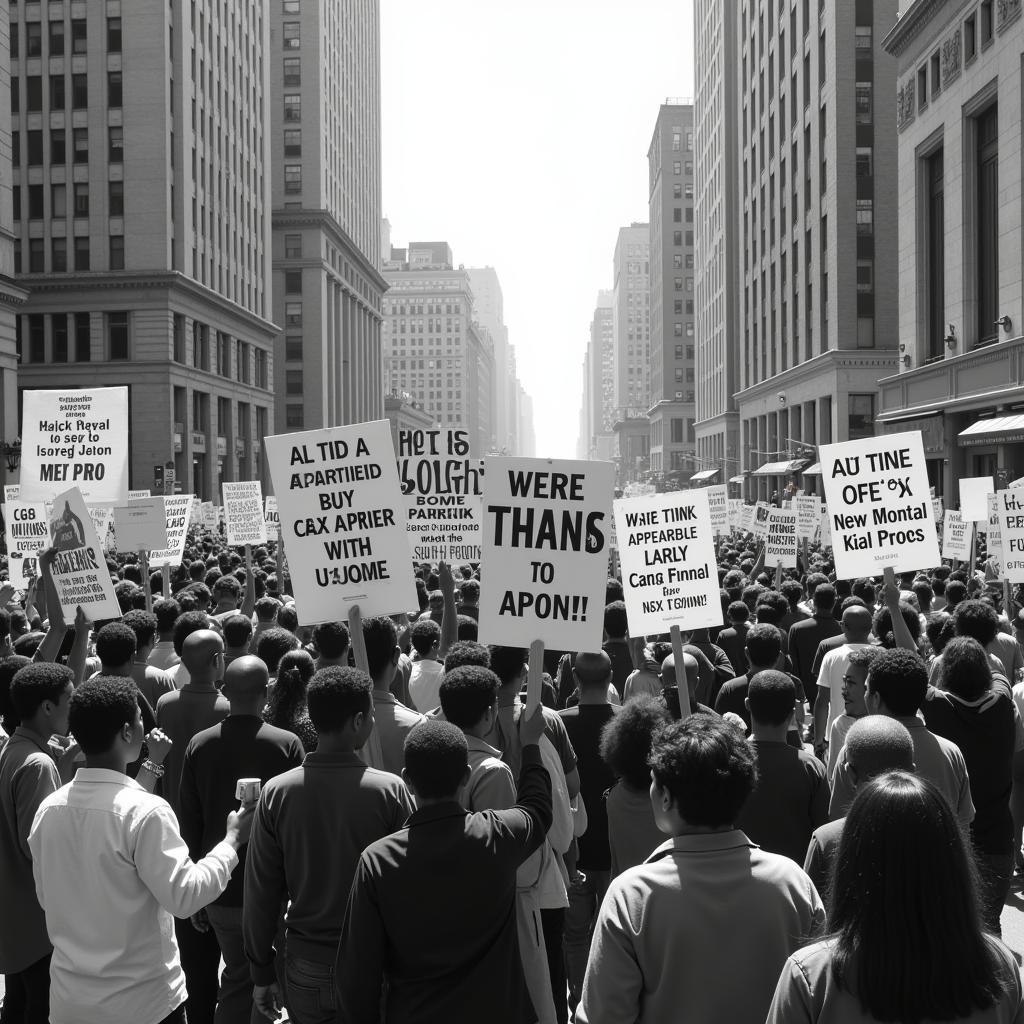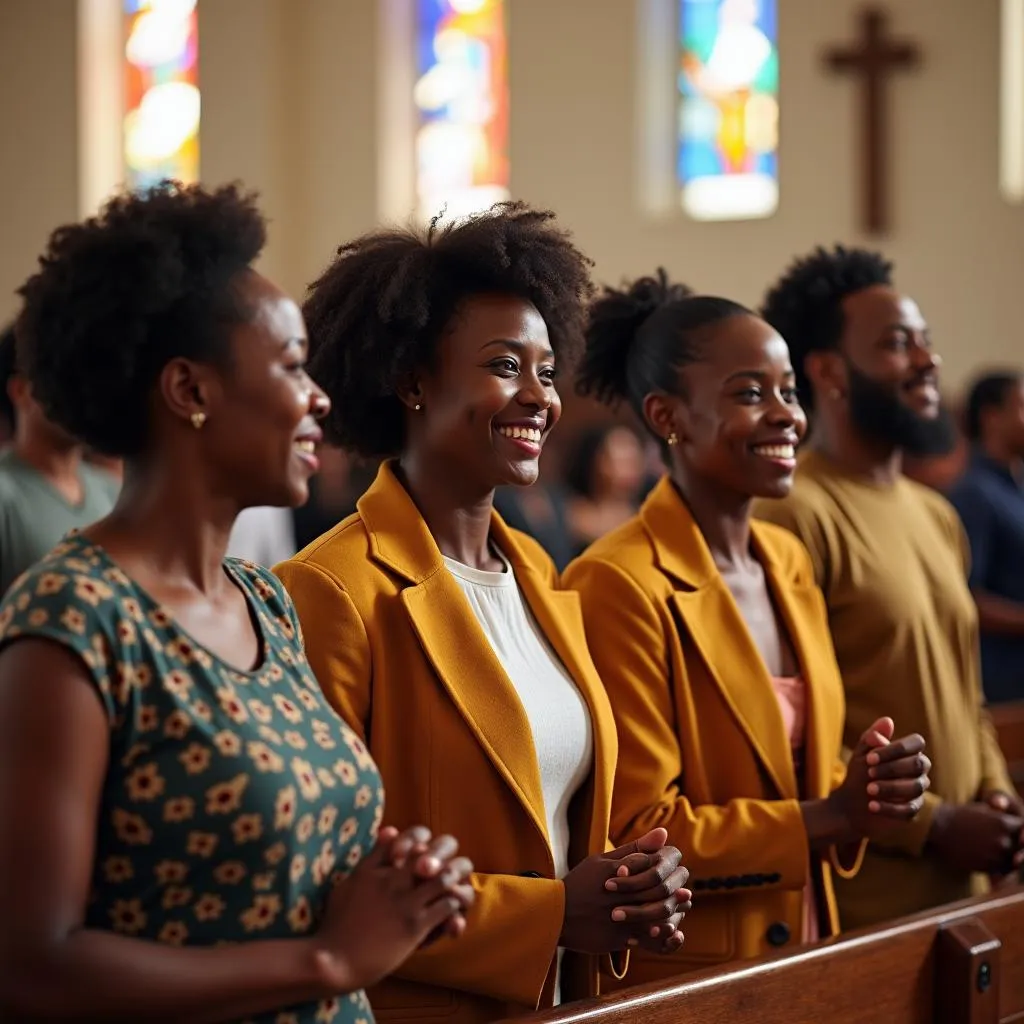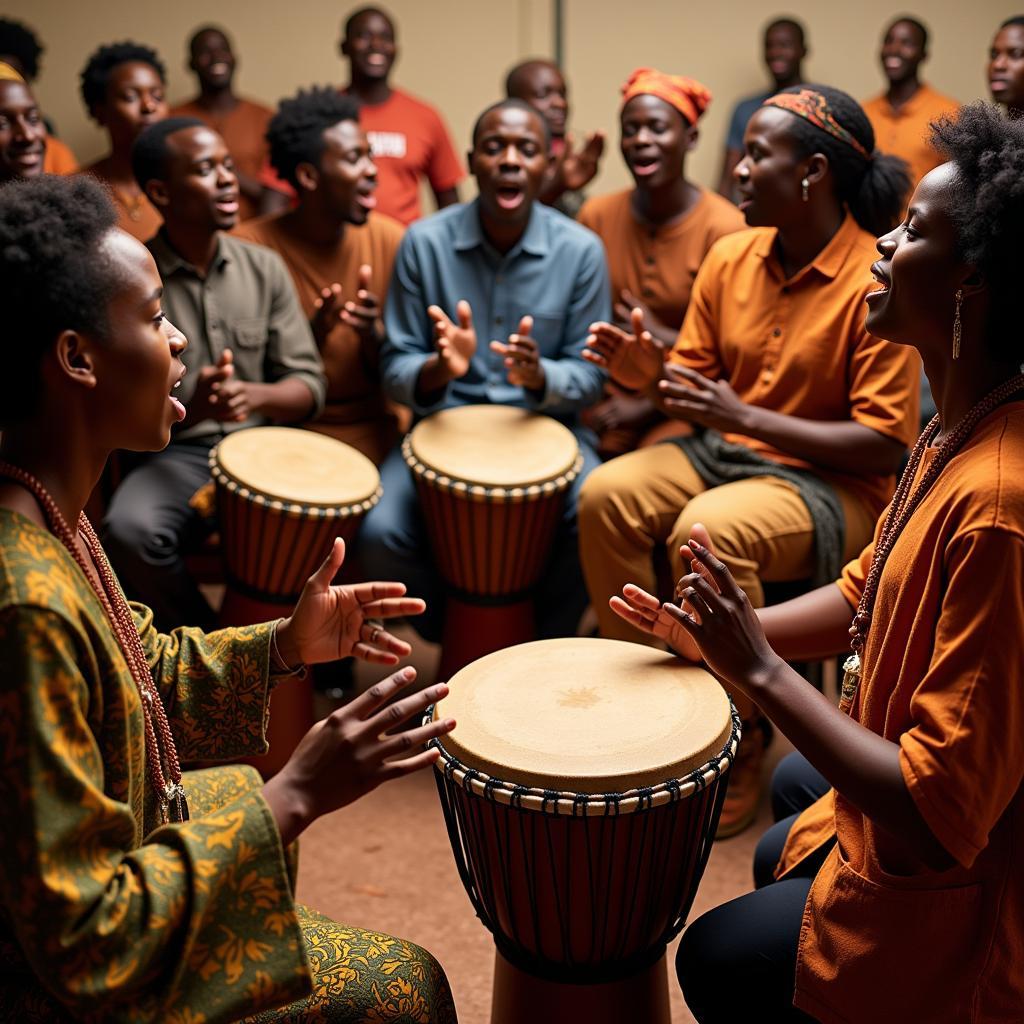African Americans and the Fight Against Apartheid
From its inception, the South African apartheid regime, with its codified system of racial segregation and discrimination, drew widespread condemnation. While the struggle against apartheid is often associated with South Africans themselves, the movement found significant support far beyond the African continent, resonating powerfully with African Americans. This piece explores the multifaceted role African Americans played in the fight against apartheid, encompassing political activism, economic sanctions, and cultural solidarity.
 African American Anti-Apartheid Protest in the US
African American Anti-Apartheid Protest in the US
A Shared Struggle: Recognizing Injustice
For many African Americans, the injustices faced by Black South Africans under apartheid mirrored their own experiences with segregation and discrimination in the United States. The parallels were undeniable – the denial of basic human rights, economic disenfranchisement, and the violence perpetrated by a system built on white supremacy. This shared experience fostered a sense of kinship and fueled a deep-seated commitment to dismantling apartheid.
African American intellectuals, activists, and community leaders were instrumental in raising awareness about the horrors of apartheid within the United States. They organized rallies, protests, and educational campaigns, urging the US government to take a stronger stance against the South African regime. Figures like Dr. Martin Luther King Jr. and Malcolm X drew direct connections between the Civil Rights Movement and the anti-apartheid struggle, emphasizing the global fight for racial justice.
From Streets to Sanctions: Political and Economic Pressure
Beyond grassroots activism, African Americans leveraged their political capital to advocate for concrete measures against South Africa. Black politicians, including members of the Congressional Black Caucus, consistently championed legislation aimed at isolating the apartheid regime. This pressure culminated in the 1986 Comprehensive Anti-Apartheid Act, which imposed economic sanctions on South Africa, marking a watershed moment in the fight against apartheid.
The sanctions, while initially opposed by the Reagan administration, represented a significant victory for the anti-apartheid movement. They sent a clear message of condemnation to the South African government and contributed to the growing economic and political pressure that ultimately led to the dismantling of apartheid.
Cultural Connections: Music, Art, and Solidarity
The fight against apartheid extended beyond the political realm, finding expression in various cultural forms. African American musicians, artists, and writers played a crucial role in raising awareness about apartheid and fostering a sense of global solidarity with South Africans.
Musicians like Harry Belafonte and Stevie Wonder used their platforms to denounce apartheid and amplify the voices of those suffering under its yoke. Songs like “Free Nelson Mandela” became anthems of the anti-apartheid movement, galvanizing support and keeping international attention focused on the issue.
 African American Musician Performs at Anti-Apartheid Concert
African American Musician Performs at Anti-Apartheid Concert
A Legacy of Activism and Allyship
The role of African Americans in the fight against apartheid stands as a testament to the power of international solidarity and the enduring commitment to racial justice. Their activism, spanning political lobbying, economic pressure, and cultural expression, was instrumental in dismantling one of the most oppressive regimes in modern history. The legacy of this struggle continues to resonate today, inspiring ongoing efforts to combat racism and inequality in all its forms.
FAQ
1. What were some of the key events that led to the passage of the Comprehensive Anti-Apartheid Act?
2. How did African American artists use their platforms to raise awareness about apartheid?
3. What were some of the challenges faced by African Americans in their fight against apartheid?
4. How did the end of apartheid impact the relationship between South Africa and the United States?
5. What lessons can be learned from the collaboration between African Americans and South Africans in the fight against apartheid?
Need More Information?
For further exploration of related topics, consider visiting these pages:
Contact Us:
For assistance, please contact us at:
Phone Number: +255768904061
Email: kaka.mag@gmail.com
Address: Mbarali DC Mawindi, Kangaga, Tanzania.
We have a 24/7 customer support team ready to assist you.


